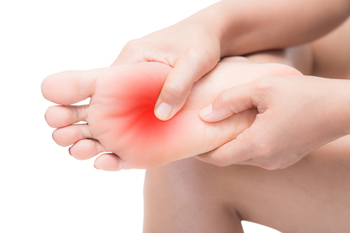Items filtered by date: September 2023
Are You Suffering From Ingrown Toenails?
Tips on Running Shoes for Beginners

Finding the perfect pair of running shoes is the first step for any beginner embarking on their running journey. Your choice of footwear can significantly impact your comfort, performance, and overall running experience. It may help to have a podiatrist analyze your gait, arch type, and foot shape in order to guide your purchase. Consider where you plan to run most frequently. Different shoes are designed for specific terrains, such as road running, trail running, or even treadmill running. Comfort should be a top priority when trying on running shoes. They should feel snug but not too tight. Make sure there's ample room for your toes to wiggle and breathe. Take your time to try on several pairs and jog around the store to get a real feel for how they perform. Also, remember that running shoes have a limited lifespan, typically ranging from 350 to 500 miles, depending on terrain, running style, and body weight. Keep track of your mileage and be prepared to replace your shoes when they show signs of wear and tear. For more information on finding the right running shoe for you, it is suggested that you make an appointment with a podiatrist.
If you are a runner, wearing the right running shoe is essential. For more information, contact Philip Hahn, DPM from Advanced Foot & Ankle Center. Our doctor can provide the care you need to keep you pain-free and on your feet.
Choosing the Right Running Shoe for Your Foot Type
To increase performance and avoid the risk of injury, it is important to choose the right running shoe based on your foot type. The general design of running shoes revolves around pronation, which is how the ankle rolls from outside to inside when the foot strikes the ground.
- Neutral runners are able to choose from a wide variety of shoes, including minimalist shoes or even going barefoot.
- Runners who overpronate, or experience an over-abundance of ankle rolling, should choose shoes that provide extra motion control and stability.
- Runners who underpronate, or supinate, have feet that have high arches and lack flexibility, preventing shock absorption. They require shoes with more flexibility and cushion.
If you have any questions please feel free to contact our office located in Texarkana, TX . We offer the newest diagnostic and treatment technologies for all your foot and ankle needs.
Charcot-Marie-Tooth Disease Impacts Functioning

Charcot-Marie-Tooth Disease, or CMT, is a disorder of the peripheral nerves, responsible for transmitting information to and from the brain and spinal cord. CMT disrupts these nerves, leading to sensory loss and muscle deterioration. This results in symptoms like balance problems, foot abnormalities, pain, and difficulty walking. Charcot-Marie-Tooth Disease is a progressive condition, worsening over time, and affecting about 150,000 people in the United States and 3 million worldwide. It is important to understand the peripheral nervous system to comprehend CMT. The peripheral nervous system links the central nervous system to organs, limbs, and skin, enabling the transmission of information and regulating functions like heartbeat and breathing. Nerve signals are carried by axons covered with myelin, akin to electrical wires in a home. CMT can cause myelin decay, slowing nerve signals and affecting longer limbs first. If you are having peripheral nerve damage affecting your feet, it is suggested that you make an appointment with a podiatrist for a proper diagnosis and treatment that will provide you relief with everyday functioning.
Neuropathy
Neuropathy can be a potentially serious condition, especially if it is left undiagnosed. If you have any concerns that you may be experiencing nerve loss in your feet, consult with Philip Hahn, DPM from Advanced Foot & Ankle Center. Our doctor will assess your condition and provide you with quality foot and ankle treatment for neuropathy.
What Is Neuropathy?
Neuropathy is a condition that leads to damage to the nerves in the body. Peripheral neuropathy, or neuropathy that affects your peripheral nervous system, usually occurs in the feet. Neuropathy can be triggered by a number of different causes. Such causes include diabetes, infections, cancers, disorders, and toxic substances.
Symptoms of Neuropathy Include:
- Numbness
- Sensation loss
- Prickling and tingling sensations
- Throbbing, freezing, burning pains
- Muscle weakness
Those with diabetes are at serious risk due to being unable to feel an ulcer on their feet. Diabetics usually also suffer from poor blood circulation. This can lead to the wound not healing, infections occurring, and the limb may have to be amputated.
Treatment
To treat neuropathy in the foot, podiatrists will first diagnose the cause of the neuropathy. Figuring out the underlying cause of the neuropathy will allow the podiatrist to prescribe the best treatment, whether it be caused by diabetes, toxic substance exposure, infection, etc. If the nerve has not died, then it’s possible that sensation may be able to return to the foot.
Pain medication may be issued for pain. Electrical nerve stimulation can be used to stimulate nerves. If the neuropathy is caused from pressure on the nerves, then surgery may be necessary.
If you have any questions, please feel free to contact our office located in Texarkana, TX . We offer the newest diagnostic and treatment technologies for all your foot care needs.
The Impact of Shoes on Feet and Overall Body Comfort

Footwear plays a crucial role in the overall health of your feet and musculoskeletal system. Shoes with narrow toe boxes, toe spring, and elevated heels can have profound effects on various parts of your body. Some shoes fit the ankle in a slightly plantar-flexed position, destabilizing it, and increasing the risk of ankle sprains. They also shorten posterior calf muscles and tendons, potentially leading to reduced muscle elasticity and performance. These kinds of shoes can negatively impact the knees, the pelvis, in addition to the spine. Optimal foot alignment within naturally shaped footwear, characterized by a wide toe box and a level sole, can help address these concerns. This type of footwear encourages even weight distribution, natural joint alignment, and balanced spinal curvature, promoting overall musculoskeletal health. If you would like professional help with choosing footwear that will best maintain the health of your feet and benefit the rest of your body, it is suggested that you make an appointment with a podiatrist to discuss this subject further.
It is important to find shoes that fit you properly in order to avoid a variety of different foot problems. For more information about treatment, contact Philip Hahn, DPM from Advanced Foot & Ankle Center. Our doctor will treat your foot and ankle needs.
Proper Shoe Fitting
Shoes have many different functions. They cushion our body weight, protect our feet, and allow us to safely play sports. You should always make sure that the shoes you wear fit you properly in order to avoid injuries and deformities such as: bunions, corns, calluses, hammertoes, plantar fasciitis, stress fractures, and more. It is important to note that although a certain pair of shoes might be a great fit for someone else, that doesn’t mean they will be a great fit for you. This is why you should always try on shoes before buying them to make sure they are worth the investment. Typically, shoes need to be replaced ever six months to one year of regular use.
Tips for Proper Shoe Fitting
- Select a shoe that is shaped like your foot
- Don’t buy shoes that fit too tight, expecting them to stretch to fit
- Make sure there is enough space (3/8” to ½”) for your longest toe at the end of each shoe when you are standing up
- Walk in the shoes to make sure they fit and feel right
- Don’t select shoes by the size marked inside the shoe, but by how the shoe fits your foot
The shoes you buy should always feel as good as they look. Shoes that fit properly will last longer, feel better, and improve your way of life each day.
If you have any questions, please feel free to contact our office located in Texarkana, TX . We offer the newest diagnostic and treatment technologies for all your foot care needs.
Fewer Complications With Minimally Invasive Foot Surgery

Minimally invasive foot surgery is a contemporary approach to solving foot problems. It involves performing standard foot and ankle surgeries through small incisions, which minimizes soft tissue damage compared to traditional open surgery. Minimally invasive foot surgery utilizes tiny instruments and incisions to address issues like bunions, hammertoes, and more. This approach results in reduced post-operative pain, less swelling, minimal scarring, and a faster return to regular activities. While there is less soft tissue trauma with this type of surgery, bone healing time remains consistent. During recovery, elevation, calf muscle and toe exercises, and avoidance of prolonged foot dependency are essential. If you have foot problems that require surgery, it is suggested that you make an appointment with a podiatrist to discuss whether minimally invasive foot surgery is right for you.
Foot surgery is sometimes necessary to treat a foot ailment. To learn more, contact Philip Hahn, DPM of Advanced Foot & Ankle Center. Our doctor will assist you with all of your foot and ankle needs.
When Is Surgery Necessary?
Foot and ankle surgery is generally reserved for cases in which less invasive, conservative procedures have failed to alleviate the problem. Some of the cases in which surgery may be necessary include:
- Removing foot deformities like bunions and bone spurs
- Severe arthritis that has caused bone issues
- Cosmetic reconstruction
What Types of Surgery Are There?
The type of surgery you receive will depend on the nature of the problem you have. Some of the possible surgeries include:
- Bunionectomy for painful bunions
- Surgical fusion for realignment of bones
- Neuropathy decompression surgery to treat nerve damage
Benefits of Surgery
Although surgery is usually a last resort, it can provide more complete pain relief compared to non-surgical methods and may allow you to finally resume full activity.
Surgical techniques have also become increasingly sophisticated. Techniques like endoscopic surgery allow for smaller incisions and faster recovery times.
If you have any questions please feel free to contact our office located in Texarkana, TX . We offer the newest diagnostic and treatment technologies for all your foot and ankle needs.





